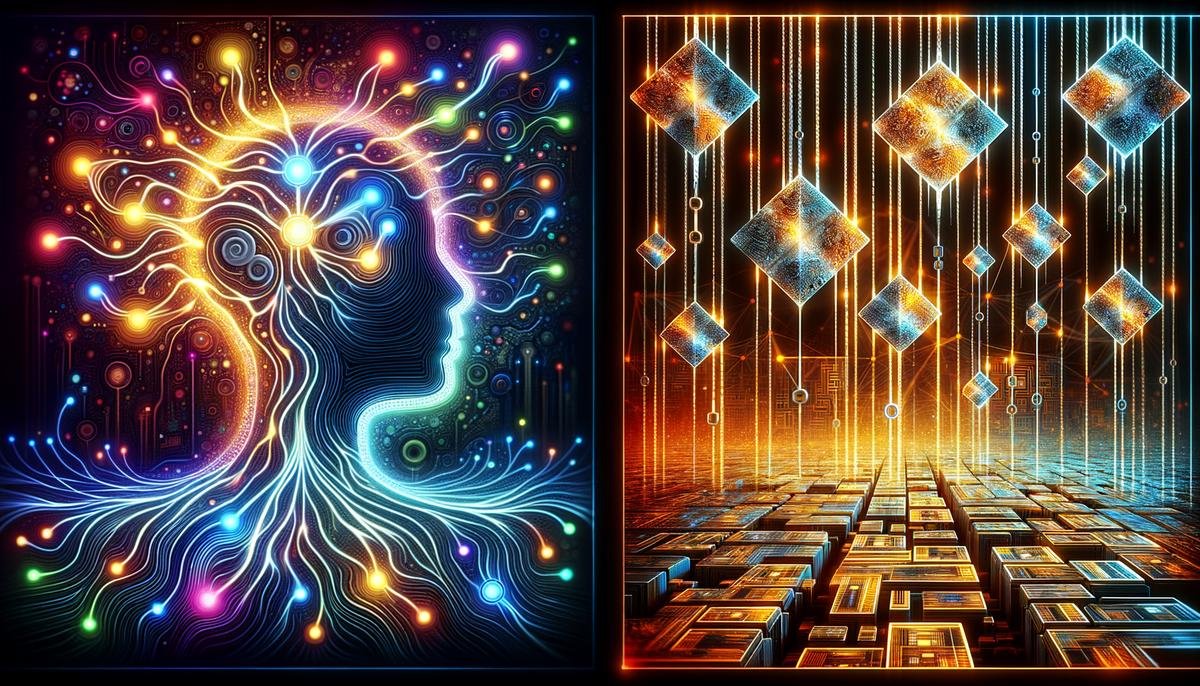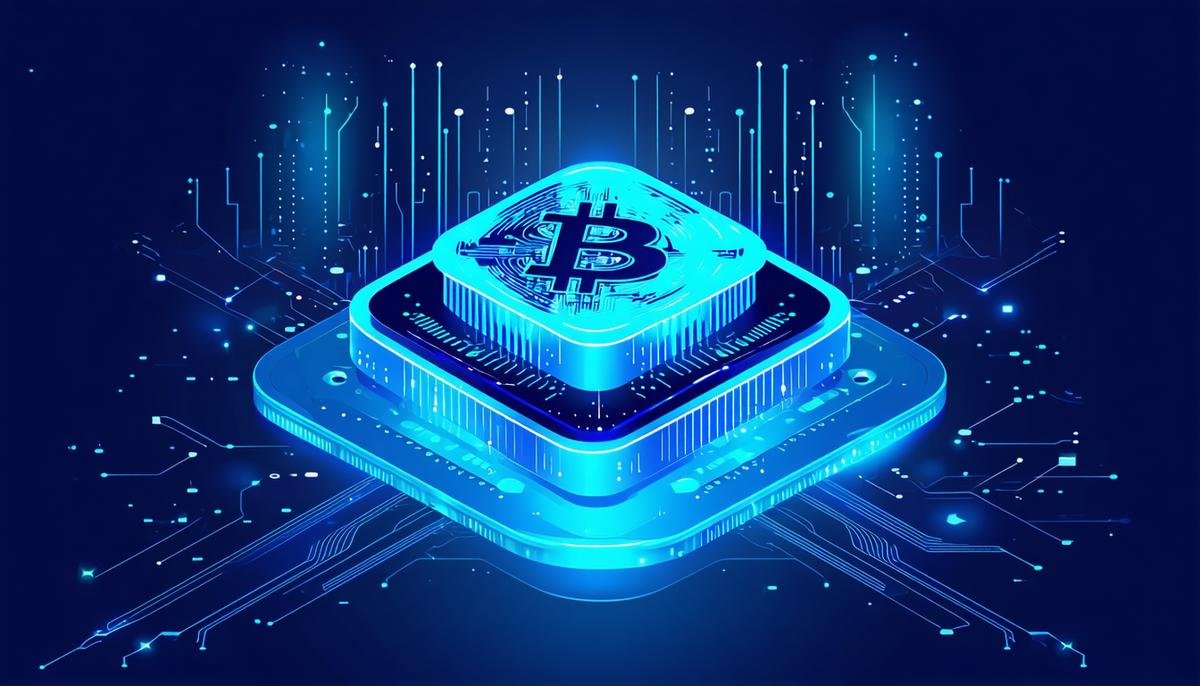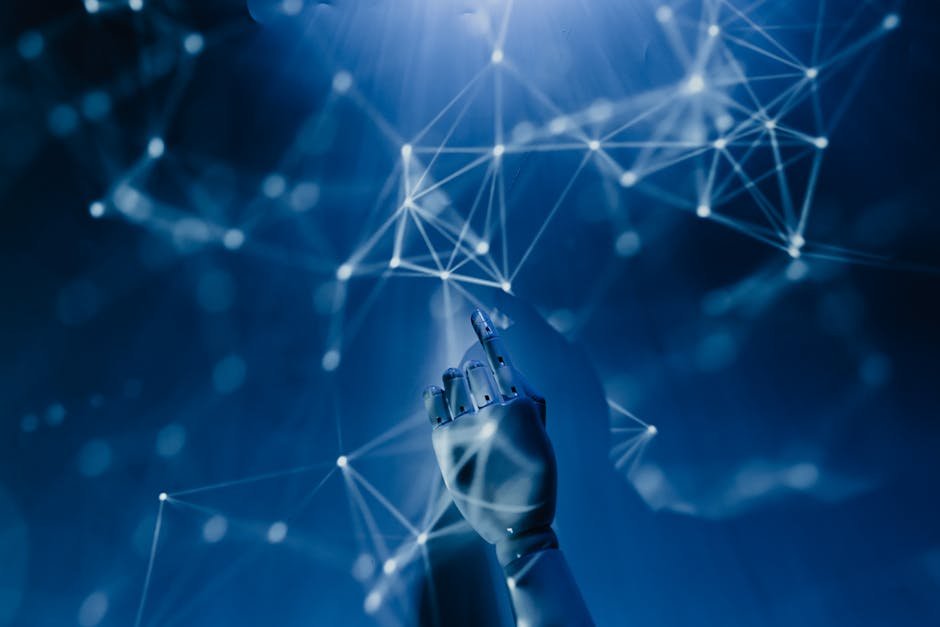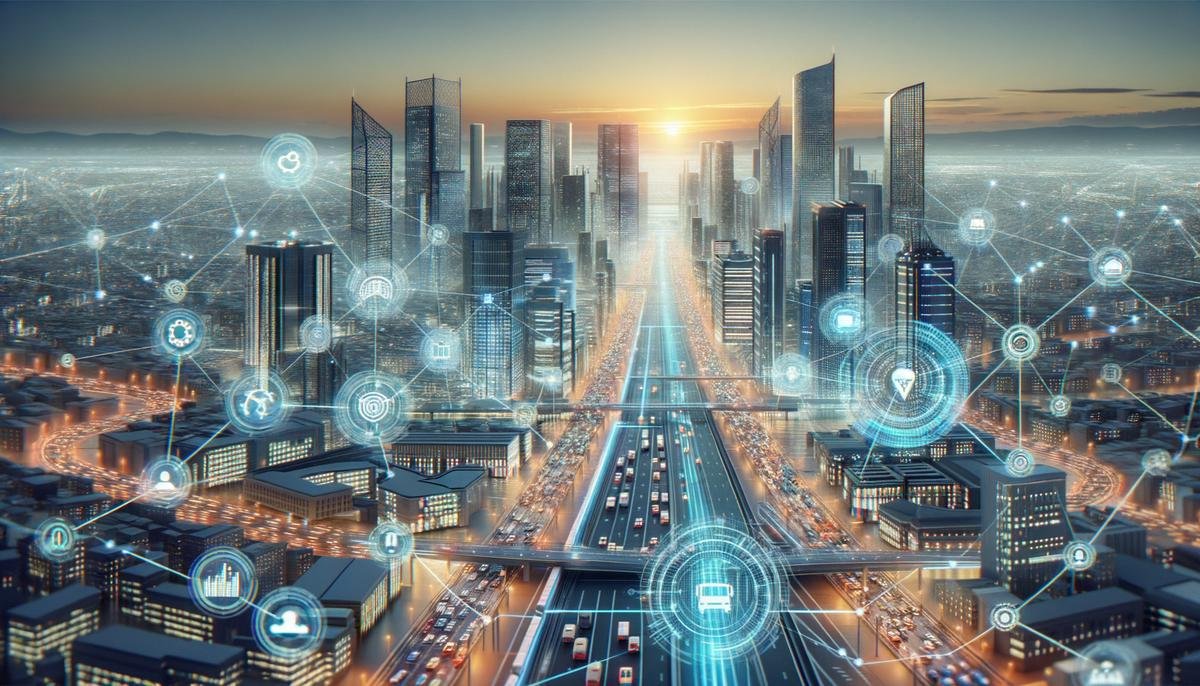Understanding AI and Blockchain
Artificial Intelligence (AI) and blockchain are two significant technologies, each with unique capabilities. AI enables machines to learn and make decisions, processing vast amounts of data efficiently. Blockchain, on the other hand, is a decentralized ledger that ensures secure and transparent transactions.
AI operates on algorithms that can analyze and predict with high accuracy, finding applications in various fields from virtual assistants to finance. Blockchain's strength lies in its ability to maintain honest and transparent records, making it ideal for applications like cryptocurrencies and asset tracking.
When combined, AI and blockchain create a powerful synergy. AI can analyze data to make decisions, while blockchain ensures the data's security and integrity. This combination is particularly useful in applications like smart contracts – automated agreements that execute when specific conditions are met.
In finance, AI can swiftly analyze transactions to detect potential fraud, while blockchain ensures the security and transparency of these transactions. Together, they streamline processes and enhance security across various sectors.

AI and Blockchain in Trading
In cryptocurrency trading, AI and blockchain are making significant impacts. AI acts as a tireless analyst, processing vast amounts of data to identify trends and make predictions. It drives strategies that can quickly capitalize on market fluctuations.
Blockchain serves as the secure foundation, ensuring every trade is recorded transparently and immutably. Its decentralized nature makes tampering with trading data extremely difficult, enhancing the overall trustworthiness of the trading ecosystem.
AI's capabilities are particularly evident in high-frequency trading, allowing for numerous transactions to be executed rapidly. AI algorithms can detect minor market inefficiencies, enabling precise trading decisions.
The integration of these technologies also streamlines the settlement process, reducing the need for intermediaries and lowering costs. This combination of AI and blockchain is transforming cryptocurrency trading, offering improved efficiency, transparency, and security.

Opportunities in AI and Blockchain Integration
The integration of AI and blockchain creates opportunities across various industries. In fraud detection, AI can analyze large datasets to identify suspicious activities, while blockchain ensures the security and immutability of transaction records.
Smart contracts benefit from this integration, with AI processing conditions and blockchain providing verification. This setup is particularly useful in industries like real estate, where it can automate and secure deal processing.
In healthcare, the combination of AI and blockchain can enhance data privacy and security. AI can analyze patient data for better diagnoses and treatment plans, while blockchain maintains data integrity and access control.
The logistics industry also stands to gain, with blockchain providing accurate tracking of goods and AI optimizing routes and schedules. This integration streamlines processes and enhances security and transparency across multiple sectors.

Challenges in AI and Blockchain Adoption
Adopting AI and blockchain technologies presents several challenges:
- Technical integration: Complex, requiring specialized skills to effectively combine AI's data processing capabilities with blockchain's decentralized structure.
- Regulation: Legal frameworks struggle to keep pace with technological advancements. Issues surrounding data ownership, compliance, and privacy laws, especially across international borders, need to be addressed.
- Scalability: AI requires high-speed data processing, while blockchain prioritizes decentralized stability, often at the cost of speed. Solutions like sharding and innovative consensus mechanisms are being explored to address these issues.
Overcoming these challenges requires collaboration between policymakers, innovators, and industry leaders to develop adaptive frameworks that support innovation while ensuring compliance and privacy.

Future Implications of AI and Blockchain
The future integration of AI and blockchain is set to impact various industries significantly. In finance, AI algorithms could enhance investment strategies, while blockchain ensures secure and transparent transactions.
Healthcare could see advancements in personalized medicine, with AI analyzing patient data for accurate diagnoses and treatment plans, supported by blockchain's secure data management.
Supply chain management may benefit from AI's optimization capabilities and blockchain's traceability features, potentially transforming logistics and inventory management.
These technologies might also influence market dynamics, possibly reducing the need for intermediaries and empowering consumers with increased data access. This could lead to more transparent and efficient markets.
The workforce may need to adapt, with a greater emphasis on tech skills and creativity. New educational paths focused on technology integration may emerge to prepare for these changes.
While the integration of AI and blockchain presents challenges, it also offers opportunities for innovation and improvement across various sectors.

As we look ahead, the collaboration between AI and blockchain holds the potential to reshape industries and redefine how we interact with technology. By blending data-driven insights with secure transactions, these technologies are set to create a future where efficiency and transparency are at the forefront. This partnership is more than just a technological advancement; it's a step towards a world where innovation drives progress and possibilities are endless.
- Fortune Business Insights. Global AI and blockchain market value projection. 2021.
- Nakamoto S. Bitcoin: A Peer-to-Peer Electronic Cash System. 2008.
- Moody's Investor Service. AI and blockchain in financial markets report. 2023.




